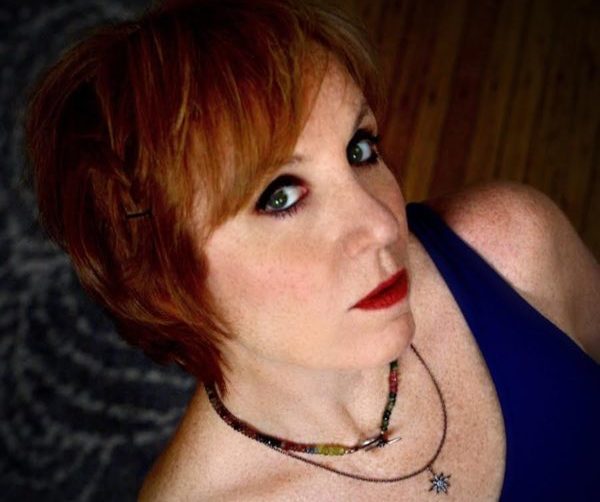Meet Americana singer-songwriter, Janie Barnett.
Janie is no stranger to the many pressures that come with being a woman. She knows what it’s like to be a mother, wife, daughter, therapist, friend, and professional all at the same time. In her life, she has had to balance raising a child, navigating a divorce, and advancing her career. This struggle to stay afloat in the midst of life’s challenges is a theme in Janie’s newest album, You See This River.
The songs on this album are a result of Janie’s life-long musical exploration to find her artistic voice. They are pulled from some of the most deeply emotional moments of that journey. With this album, she hopes to empower women who have faced similar challenges in their lives. She seeks to show these women that they are not alone in their journey.
Janie, a Virginia native, has been a part of countless film, TV, and commercial projects. She has had guest appearances on The Today Show and Saturday Night Live, and has been a backup singer for stars like Celine Dion, Linda Ronstadt, and Rickie Lee Jones.
Women of Green had the great honor to interview Janie about her remarkable journey. We believe that our followers will find her insights and advice both inspirational and empowering. Her genuine kindness really shows through her words. Check out the interview below.
Women of Green: The songs on your second album, You See this River, have been greatly influenced by your personal journey as a musician (and human being). What is your vision for this album? What impact do you hope to achieve?
Janie: At the outset, my vision was simply to document what I had been writing. It was as simple as that. Get this documented, confirm to myself that I am creating something that I stand behind. As the process continued, and I began to share the recordings with people, it was clear that the stories were resonating in a big way – and that people were journeying through the songs on a very personal level. So the vision is to illuminate the stories of survival, connections to our civic communities, the people we love whether romantically, collegially, spiritually, or something undefined. Relationships that cannot be easily categorized pervade the songs, and this is a universal reality. I ask, and we all ask: What do I call this relationship? What do I call this journey down the river? I want to explain it precisely, but perhaps I can’t. Many of these stories are messy, because a full life on our planet, and even our relationship to the physical world, is messy much of the time. It has been my hope to share that experience, through this album, and give voice, as artists are tasked with doing.
WOG: You have undoubtedly faced many hurdles to get to where you are now, such as learning how to raise a child while navigating a divorce. Were there ever times that you felt like giving up on your dreams of becoming a successful singer? What inspired you to keep going?
Janie: I never once thought that my life as a musician/writer/singer would cease to be. There certainly were moments of weakening resolve, though. When you commit to being a parent, you imagine all the ways your life will NOT change. You are strong and determined, and you are sure you can carry the weight of it all. And – what? Add 6 hours to a 24 hr day? Stop sleeping completely? It never pans out that way. My daughter’s father and I are both musicians and have always lead freelance lives. We faced tremendous challenges. Ultimately the goal was to stay in the game. Keep some form of creative life going while trying to pay the bills and parent well. A constant revising of the game plan was essential. So being creative in that regard was essential too!
I still maintain that having my daughter made me a far better- and more disciplined artist. Take those 2 hours she’s napping and flip the switch to write. I had the luxury as well of having childcare during the younger years, which many parents do not. That is never to be ignored. We keep going during these times, honestly, because we can’t NOT do it. Our passions get a hold of us and if they don’t let go, then we keep going in whatever way we can. Eventually we move into periods where we have more freedom to devote to our craft.
Family life – its beauty and its struggles- inspired the work from day one, that should go without saying. I will add one more thing to this part of the interview. When I was 14 I took a writing course from a man named Jonathan Klimo – he was himself a proclaimed feminist and he shared something his friend the poet Franny Howe said, and I hope I’m remembering this quote at least remotely accurately. She had quite a few children she was raising – more than my one, that’s for sure! When asked why her poems at the time were short form, she replied “I figured out I can only memorize 17 lines at a time.” I like to say I wrote one of my best choruses walking from the subway to pick up my daughter from after-school. It was 8 lines long.”

Source: sunawang
WOG: As a woman, you have had to wear many hats throughout your life — mother, wife, daughter, and friend. These hats alone can certainly provide enough work to keep a person sufficiently busy, yet you have also managed to pursue a successful career as a singer and songwriter. What guidance can you offer women who may feel that the responsibilities in their personal lives are holding them back from reaching their professional goals?
Janie: I managed to answer most of this, in terms of the day-to-day approach, in the previous question, but I have a few general thoughts. We tend to hold a few myths, from our second wave feminist culture, I believe. First, that it is totally possible and probable that we can parent and fulfill our career aspirations as “completely” as we would if we were only doing one of those things. Turns out, uh…pretty tough.
But so what? We have made this choice for a reason, and it is now possible to re-think how we “fully” engage with both jobs. We need to be creative with our time. We need to fully commit in the moment to each task when we are in it, and try very hard not to guilt trip ourselves about the “other” – you all know what I mean. Worrying about your kid while you’re on the job. Worrying about your job while you’re with your kid. But primarily, let’s allow ourselves to be the ones who define what success in this given time frame means to us. And to revise our game plans as time goes on.
It’s okay to set a goal of staying in the game during this period of family life. It’s your version of success that matters. As our children grow, they become invested on a cognitive level in our success, as we are in theirs. And thus our game plans can change. Who thinks their children are all about themselves and not their parents’ passions as well? Succeeding at things we care about should be a family affair, to whatever degree is possible in a given time frame. I advocate for (forgive the cliché) thinking outside of the box when it comes to staying in the game, and keeping your passions alive and thriving.
WOG: At Women of Green, we seek to turn up the volume of the feminine voice to create meaningful change on behalf of the planet and future generations. Do you think that it is important that women’s voices are heard? If so, how are you turning up the volume in your life? How do you think we can turn up the volume of the feminine voice more?
Janie: Women of all stratas have been making their voices heard since the beginning of time, the mechanisms have only been shifting and changing. I have often been hesitant to identify myself as distinctly a woman’s voice, but I no longer wrestle with that. We each have many voices inside of us. Women engaged in civic exchange have some unique perspectives. We are mothers, daughters, survivors of assault, keepers of hereditary DNA. And we are in positions of power, power that we can use for progress not oppression.
Releasing this album was a big “turn up the voice” effort. I was ready to make a public statement for the first time in many years, about things I care about: ambiguous relationships, gun laws, apathy, spirituality. I will also say that in the past years, not only have I committed to my art work more fully, I have committed to my women friends in a way that I could not, ironically, while I was actively parenting. I cannot overstate how crucial and life-affirming this has been. And that includes my female students at Berklee College of Music as well. Mentoring those women in a deeper more creative way informs the larger voice of women everywhere.
WOG: Do you believe that the collective power of women can “change the game”? What evidence of this have you seen in your life?
Janie: What I see in my communities – my professional and personal communities in NY, and my collegial community at Berklee College of Music – the dialogue among women has been inspiring and instigating, and I can only say that I know in my gut that the collective voice has resonated beyond the circle. We all must look to broaden the circle of reason and passion. To promote the idea that the left- and right brain are essential to the smallest of communities and the largest of world crises.

Janie Barnett has been a part of countless film, TV, and commercial projects. She has had guest appearances on The Today Show and Saturday Night Live, and has been a backup singer for stars such as Celine Dion, Linda Ronstadt, and Rickie Lee Jones.
Her most recent album, You See This River, is the culmination of years of exploration. Recording artist Kenny White says of her work, “Janie turns the bumps, bruises, and joys of life into evocative and relatable songs…and makes it sound easy…which ain’t easy.” You can stream You See This River here.
Follow Janie on Facebook and Twitter to get the latest updates on her music.
Women of Green is TURNING UP THE VOLUME of the feminine voice on the planet in order to create the world we know is possible.
